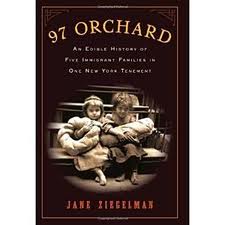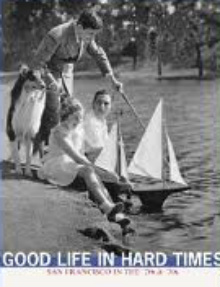Your Family History Didn’t Happen in a Vacuum
Biff Barnes
“I just don’t have a lot of family stories,” say far too many genealogists who want to write a family history.
I understand. Everyone always wishes they had taken the time to gather family stories when they had a chance. There are plenty of questions you wish you’d asked Grandfather Harry or Great Aunt Sue, who was the family busybody and knew everybody’s story. But the opportunity to sit down with them with a notebook and pen or even better a tape recorder has come and gone.

But that doesn’t your family history is doomed to be a dutiful recounting of facts recalled from your genealogical research and pages of pedigree charts. You can make your book lively and interesting. All it takes is a little perspective.
People used to title biographies The Life and Times of So and So. It was a good insight about approaching a person’s story. There were not only the details of the person’s own experiences, there was the broader context of the time and place in which those experiences occurred. Think about the times and places in which your ancestors lived as well as the facts about their lives. If you do you will be able to give your readers an opportunity to visit the world in which your ancestors lived as well as documenting the facts of their lives.
Look at the big picture first. Sometimes public events or policy shaped the course of ancestor’s lives. My grandfather, after being a printer all his life, closed his printing business located near 29th and Mission Streets in San Francisco in 1934, and left the trade forever. He never told me why. The fact was that a cornerstone of Franklin Roosevelt’s plan to pull the nation out of the Great Depression was piece of legislation called the National Industrial Recovery Act which was designed to halt the downward spiral of the economy fostered by “cut-throat competition.” The NRA established codes of fair competition, minimum wages, maximum hours and minimum prices. My grandfather’s printing press was an old one which printed fewer sheets per hour than newer versions then in use. He could only compete by charging a lower hourly rate for presswork. The minimum price regulation made it impossible to compete, so he closed his business. That look at the broader context of national policy makes grandfather’s story more interesting than the simple fact that he shuttered the print shop.
Examine the social history of your ancestors’ times to see what the experiences of people like them would have been. You may not have stories told by your ancestors who were part of the flood tide of immigrants in the late 19th Century, but there are plenty of vivid accounts of people like them. You can draw upon classic books like Oscar Handlin’s account of the immigrant experience in The Uprooted. Or you can gain some insight into tenement life on Manhattan’s Lower East Side from the recently released 97 Orchard Street: An Edible History of Five Immigrant Families in One New York Tenement which looks at immigrant life through food. You can use them to suggest what life for your family members might have been like even if you don’t have a story passed down from one of them.

Every community from the largest city to the most sparsely settled piece of the rural countryside has someone keeping track of the local history. Sometimes the places your ancestors live are revealed in a book. A retired San Francisco newspaper man, Jerry Flann, wrote a wonderful book filled with pictures called Good Life in Hard Times: San Francisco in the ‘20s and ‘30s which allowed me to see the city as it was for my parents and grandparents. They never told me about local radio programs like Blue Monday Jamboree, but Jerry Flann did and I’ll bet the listened. My dad told stories of watching Babe Ruth play with barnstorming teams at old Recreation Park, but I never saw the ballpark because it was torn down long before I was born. But I saw it on the pages of Flann’s book. There are probably books like his for wherever your ancestors lived. The local library, historical society or genealogical society can help you find them. And in them you’ll find your ancestors’ lives.
Broadening your research into sources like these which provide a context for the facts you have gathered about your family makes your ancestors’ story a much richer one.